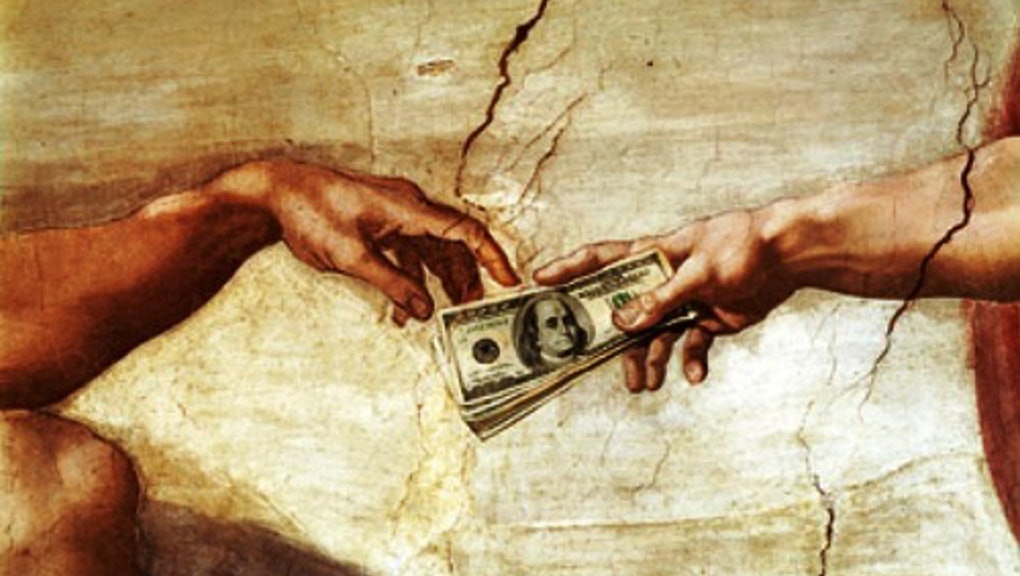
Many people feel that spirituality is a taboo topic. Part of the reason for this is because it reminds people of death – questions of God and life’s meaning go hand-in-hand with questions about the afterlife. Therefore, talking about spirituality is bad because it reminds people that they will die one day. As this essay will show, this is only part of the reason.
The purpose of spirituality is to reduce suffering.
The objective of the Buddhist path is to achieve nirvana, the objective of the Hindu path is to achieve moksha and the purpose of the Western esoteric traditions is to achieve ataraxia. In all cases, this state of ultimate enlightenment offers a liberated existence independent of material acquisition, status anxiety, social anxiety or attachment to food, sex or power – a state in which one no longer suffers.
Buddha was motivated to end the suffering of all sentient beings, and his conception of the Eightfold Path was an attempt to teach how an individual could achieve this for themselves. He taught that happiness could not be found in the material, which was an illusion. Every person had to look within themselves.
Buddha is famous for advocating meditation as an avenue to enlightenment, but all true spiritual traditions teach that happiness (or at least an end to suffering) is found within. Analects 15:20 quotes Confucius as saying “The Superior Man seeks within himself. The inferior man seeks within others.” The Tao Te Ching, likewise, is replete with admonitions to find satisfaction in everyday life and not to strive for it.
Looking within is the secret to ending suffering. From society’s perspective, however, a dilemma lies therein.
In our society, the most important thing of all is money, and getting money requires jobs. In order for a job to exist, there has to be demand for goods and services. This demand comes from only one place: human dissatisfaction. Without human suffering, there could not be money. Therefore there must be human suffering.
Many people have never comprehended the fact that other people exist, and that they are conscious, and that this consciousness suffers just like one’s own does. These people act as if the world was a virtual reality game that only they were playing, and everyone else was just an NPC. In life they are as hungry ghosts, their insatiable appetites causing them to lurch from one instinct-fueled lust to the next.
In our culture, the dissatisfaction of these unfortunates has been channelled towards buying stuff. New clothes, new cars, new toys, new foods – and all of it greases the wheels of commerce. Consumerism is therefore powered by this dissatisfaction, by suffering. It follows that anything that stops people consuming is bad.
Spirituality, though, tends to have a profound effect on people’s consumption habits. Once a person starts to look within, they start asking questions like: did that most recent purchase really increase my happiness? Or did I get more happiness from the chance social encounter I had in town last week? Once a person starts thinking like this, their lives start to change profoundly.
When a person becomes skilled at meditation, it’s easy for them to feel a more powerful sense of satisfaction from meditating than from buying new stuff. Meditating is the ultimate activity in many ways, and one of the main ways is that it is anti-consumerist. The dissatisfaction that people feel in everyday life is assuaged by meditation. So people who are into meditating are seldom the same people who line up overnight for the next iPhone release.
It follows from all of this that the engine of consumerism runs on godlessness. The further a person is from God, they more they suffer, and the more they suffer the greater the volume of goods and services they consume. The ruthless logic of the markets has led to a horrific outcome: genuine spirituality has deliberately been attacked in order to power the capitalist machine.
People with genuine spiritual insight have been persecuted for thousands of years, but this has intensified in recent centuries according to the demands of capitalism. Witches have been burned at the stake and hippies – their cultural descendants – have also been attacked. True spiritual sacraments such as cannabis and psilocybin have been criminalised, those who grow or gather them locked in cages.
Worse, false spiritual traditions have been promoted to distract people from the true ones that would help them. There are hundreds of different Christian churches who teach that wealth is evidence of God’s grace, and hundreds of millions of other Abrahamists who mutilate the genitals of their children, persecute homosexuals and who consider women and non-believers to be subhumans.
This combination has obliterated the spiritual wealth of the masses. In doing so, however, it has caused the material wealth of the elites to overflow. Thus, it is perpetuated. Spirituality is bad for the economy, and that’s why it’s been suppressed.
We can hope that, in the coming years, the economy will be considered less important, and human suffering more important. At the least, we can hope that it will be remembered that the economy is a means for ending human suffering, and that human suffering is not a fuel that should power the economy.
*
If you enjoyed reading this essay, you can get a compilation of the Best VJMP Essays and Articles of 2019 from Amazon for Kindle or Amazon for CreateSpace (for international readers), or TradeMe (for Kiwis). A compilation of the Best VJMP Essays and Articles of 2018 and the Best VJMP Essays and Articles of 2017 are also available.
*
If you would like to support our work in other ways, please consider subscribing to our SubscribeStar fund. Even better, buy any one of our books!
